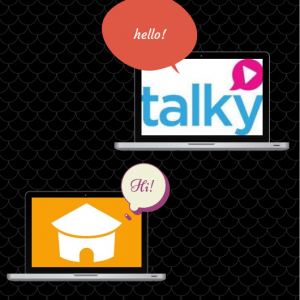
In 2014, Skype and Google Hangouts have become essential tools for people who don’t solely operate out of an office all day. These free services also help rabbis and educators stay in touch with their graduates and donors. You can also use video conferencing to learn with your congregants and students as they travel for business or pleasure. In short, nowadays, free video conferencing tools help people in the world of business and the nonprofit sector.
However, why do you need a service if you could establish a direct connection using modern browsers?
Below, are two alternatives that you can use for keeping your remote conversation up. These tools may even be an easier way to have people connect with you for a private learning session or to tune in to your weekly shiur as they don’t have to go through the trouble of logging in and connecting via Skype, etc.
The first option that we want to introduce to you is Hutt. It provides a free instant video chat without any hassle of signing up. Simply copy the link to the conversation and pass it on to everyone invited. It works in the browser and is easy to use.
The second one is Talky which also offers simple video chat and screen sharing for groups. Like Hutt, the free browser-based application allows people to join by simply knowing the conversation link. This too is a great way to easily have people tune in to your video conference call or shiur. You can add people or their screens to the video chat and lock unwelcome people out of private rooms.
We encourage you to have a look at both of these free options. They are both great services to know of in case someone you are trying to video conference with doesn’t have Google Hangouts or Skype.
Who knows? You may even decide that these browser-based tools can further enhance communication with your staff and those that you teach and inspire around the world. Hatzlacha!



















